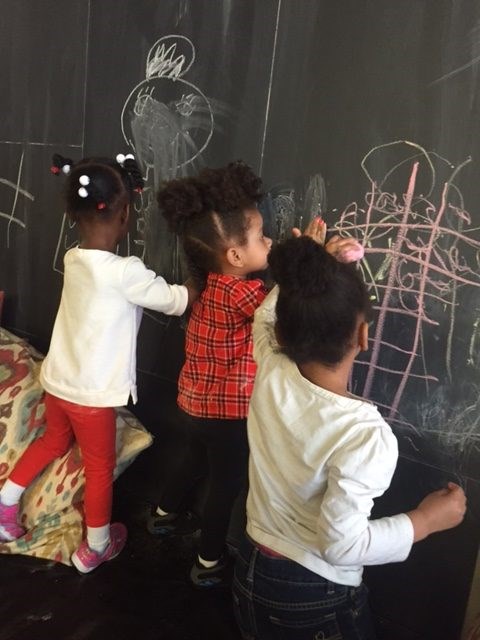
By Vanessa Penberg, Supervisor of Children's Services
It is an old stereotype that boys are innately smart and girls are nice and caring. Unfortunately this prejudice still persists today. Often, our media and culture reinforce the stereotype that brilliance is a uniquely masculine quality which influences the expectations that both teachers and parents have for children. Such attitudes are very pervasive as research has demonstrated; children of both genders begin to develop biases about intelligence as young as age six, irrespective of their race, parental education and household income.
A recent article in the New York Times by Andrei Cimpian, associate professor of psychology at NYU, and Sarah-Jane Leslie, philosophy professor and director of the programs in cognitive science and linguistics at Princeton, explores this issue. The article, titled "Why Young Girls Don't Think They Are Smart Enough", offers ways to combat the stereotypes and to provide protective factors so that young children will be less inclined to adopt them.
The authors' most recent research, conducted with psychologist Lin Bian and published in the journal Science earlier this year, studied 400 children ages five to seven over the last several years. One interesting finding is that both boys and girls under the age of five equally associate intelligence with their own gender; however, ideas about brilliance seem to change once girls turn six. After the age of six, girls recognize that they are incredibly motivated to learn and tend to perform better in school overall, yet they still assume that boys are inherently smarter.
In one of the studies, 64 children ages 6 and 7 (half boys, half girls) were shown two unfamiliar board games and told that they were either for children who are really smart or for children who try really hard. When told that a game was for really smart children, the girls showed less interest and motivation than the boys. However, when the same game was described as being suited for kids who try really hard, the girls were equally interested in attempting it as the boys, demonstrating that it was only the assumption that they weren't smart enough that prevented them from trying the game the first time. When the same test was administered to the five-year old children, the girls were just as excited as the boys to try a game for really smart children. The stereotype does not seem to emerge until a year later.
All of their various studies demonstrate that the girls were limiting the things that they were willing to try or considered would be right for them based on the assumption that they were not smart enough to participate. By the age of six, they began avoiding certain activities because they believe they "are not for them." The authors conclude that this has long-term repercussions as women are underrepresented in academic fields and in jobs that are thought to require brilliance, such as science and engineering.
Thankfully, research also provides some insight into what can be done to offset how we are socially conditioned to think about intelligence. The psychologist Carol Dweck stresses the importance of learning and effort over innate ability for success, in any career, to shield against the stereotype. She suggests that if innate ability is seen as secondary to effort, then it may help reduce the power of the stereotype that girls are less intelligent. Another critical protective factor is providing girls with successful role models in all fields, so that they are less inclined to believe that their potential is limited and to restrict their interests and intellectual pursuits.
This idea of providing girls with strong role models builds on the theme of our previous blog post on the importance of representation in children's literature and its impact on children's sense of identity and self-esteem. Girls need to see themselves represented in academia and in the workforce in positions typically thought of as masculine because of the intelligence needed to succeed. For young children, books and other media are an effective way to provide consistent exposure to strong female role models and to communicate the message that girls can accomplish anything. Children's books featuring young girls who have interests that require intellectual gifts and a passion for math and science, such as Rosie Revere, Engineer and Ada Twist, Scientist as well as the PBS Kids shows Word Girl and Peg + Cat, are good examples of stories that are inspirational and instructive. Moreover, the incredible success of Doc McStuffins and the film Hidden Figures demonstrates that there is a large market for young girls of color to see themselves represented as brilliant and excelling in the fields of medicine and hard sciences.

In honor of Women's History Month in March, Former United States Treasurer Rosa Rios (the brilliant woman responsible for putting the face of Harriet Tubman on the twenty dollar bill) created a playlist on YouTube Kids that highlights the stories of historic female figures. It is called Super Women Of Our Past, and it celebrates both established and largely unknown women throughout history.
"If girls are questioning their intellectual ability as young as six-years old, we need to provide those inspirations for them to dream big," she says. "You need inspirations to have aspirations."
When girls are exposed to and consistently reminded of women's various contributions and accomplishments, then they are more likely to see themselves and other women as being brilliant and capable of attaining such achievements.



